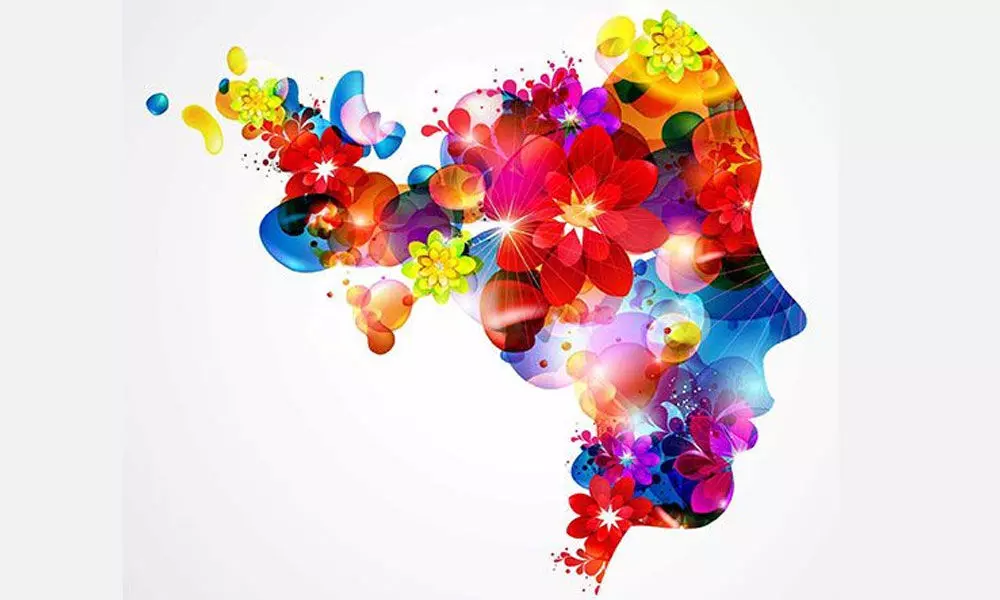Disincentives to creativity and today's youth

Disincentives to creativity and today’s youth
Youth are crucial for the success of any country
Youth are crucial for the success of any country. They are the catalysts for change. Going by the demographical numbers of India, it is no wonder that India's future is in the hands of young generation. Historically, India has failed to tap the creative potential of its people due to several reasons.
The overall development of an individual in any nation depends upon social, economical, political, historical and cultural factors. Earlier, in India, societal forces like caste and religion acted as impediments not only for the progress of an individual but also the society. Caste hierarchy, an offshoot of varna system, defined the roles and responsibilities of an individual based on his/her birth. This system decimated the creative quotient of people from the lower castes and the untouchables.
Caste system, which is characterised by inequality and rigidity, is one of the reasons for India's backwardness. Lasted for almost 2500 years with no chance for the reformation and renaissance as happened in Europe after the dark ages, caste system made India's social fabric largely static and made knowledge and ideas untransferable.
In Europe, with the rise of modern political thought, the social and economic relations between the serfs and feudal lords were dismantled and individuals were freed from the shackles of serfdom and ignorance. Western nation-states were successful in freeing the society from the religious dogmas and stereotypes. Liberated individual acts according to his/her conscience and would play a pivotal role in the progress of society.
Soon after the Bolshevik revolution, the USSR (Union of Soviet Socialist Republics) centred its plan agenda around the youth. The then Soviet leadership was aware of the fact that in order to compete with the western economies it is not only important to industrialise the Soviet Union on par with the western block but also to capitalise on the strength of young population .It took measures for the all-round development of an individual and emphasized on co-operation rather than competition.
On the one hand, it encouraged technical education and on the other hand it equally inspirited arts streams to support the creative freedom of an individual. The Soviet Union, as a part of its planned development programme, designed its educational framework not only to meet the workforce and skill requirements of core industries but also to harness the true potential of an individual.
Freedom, till now, has been viewed from the political lens. Yes, political freedom guarantees an individual from the excesses of state (political authority) and provides an individual with certain rights. But, freedom cannot be confined strictly to the political space. The real freedom empowers an individual to search for the truth. There is a direct relation between the personal freedom and the creativity. Creative minds need political as well as personal freedom to realise their potential.
In India, out of the box and creative thinking are being viewed as signs of an abnormal and unacceptable behaviour. Creativity and innovation form the bedrock of development. The prevailing social norms and stereotypes have been killing the creative appetite of young minds. In addition to the existing unwritten norms, the fear of failure is hampering the young generation to venture into the new and unconventional paths. Creativity is something different that we cannot fix it in an existing hyper-competitive environment and market oriented education system.
Now, it is the market rather than an individual that is deciding the career paths and future. In addition, what ails the current young population of India is the social and parental pressure as a result of expectations. Parents have been pushing their unfulfilled dreams onto their children. Due to the parental and peer pressure, the teens have been opting the academic courses that are not according to their tastes and wishes. Coaching centres, schools, colleges and online ed-tech companies have been banking on the emotional weakness of parents. The existing framework of education and its inflexibility has been restricting the young generation to choose academic courses according their passion and ability.
With the advent of neo-liberalism, education has turned into a commodity. Like every other sector in the capitalist economics, education and knowledge is seen as an easy profit-making industry. Obviously, there would be more buyers in this segment as every parent would dream to deliver a better life to their children.
Earlier, in India, the social status of an individual was linked to his/her caste. Now, the social status of an individual is decided by his/her qualification. Rather than viewing the education as a tool of enlightenment or as a process of transforming an individual it has become a normal or routine exercise. Market-driven educational system has forced the Indian youth into a mindless rat race to grab ranks or percentages. This phenomenon has been defeating the very purpose of acquiring the knowledge or education. In fact, knowledge is multi-dimensional. One can acquire it in many ways. Theoretical and academic learning is one aspect of it. When we think of the youth, the things comes to our minds are novelty, energy, freedom, creativity, unyielding and do or die attitude. Unfortunately, at present, market capitalism has been hijacking the minds of India's youth.
In the past, social factors like religion, caste and cultural norms cumbered the free thinking of an individual but now market has been dictating the minds and aspirations of young populace. The growing tendency among the youth of ending their lives for preposterous reasons is a cause for concern and this can be attributed to the unregulated market. If this trend goes unchecked, nation will have to pay a hefty price.
(The author is Director, Samudrala VK IAS Academy)








